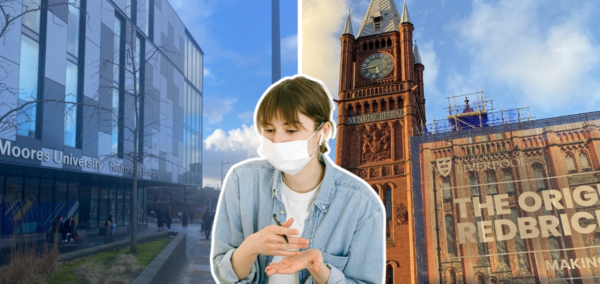SOAS and Met Police criticised over search for missing student as body pulled from Thames
SOAS claimed it ‘immediately’ attempted to contact Samaria when students first raised concerns
Friends of School of Oriental and African Studies (SOAS) student Samaria Ayanle have criticised the university and Metropolitan Police for their delayed investigations after a body was found in the Thames last month.
Met Police recovered an unidentified body from the river on February 22nd, the same day Samaria went missing, yet did not launch an investigation into the disappearance of the 19-year-old student until March 8th, BBC reports.
Whilst the body is yet to be formally identified, Met Police believe it to be Samaria and have informed family and friends of the first year student, some of which branded the delayed actions of the university and Met Police as “unjustifiable”.
A campaign was launched at SOAS by both friends and fellow students of Samaria, who was in her first year at SOAS studying Japanese and the history of art. Students raised awareness of her disappearance through posters put up around campus and word being spread on social media.
Users on X (formerly Twitter) have criticised SOAS for their inaction and for not acknowledging Samaria’s disappearance until her death was announced. Users also condemned the university for being dismissive towards students who raised her disappearance with the SOAS welfare office.
SOAS released a statement on March 13th explaining it was “saddened” to hear of the discovery of a body believed to be Samaria’s. It said: “We are deeply saddened to hear that police have discovered a body which is believed to be that of Samaria Ayanle, who was a first year student at SOAS University of London, studying for a BA in Japanese and the History of Art.
Writing on X, one person replied SOAS’ statement and criticised its lack of action following Samaria’s disappearance: “How long did it take for you to even acknowledge her? Students have been pushing their weight on social media – TikTok, Twitter & IG, spreading the word. NOT ONE single post from you to even help spread the word.”
how long did it take for you to even acknowledge her? students have been pushing their weight on social media- tiktok, twitter & ig, spreading the word. NOT ONE single post from you to even help spread the word. https://t.co/MYITwP2FoN
— s ☆.* (@01SWORLD) March 13, 2024
Another replied to SOAS’ statement questioning the university’s delay in reporting Samaria’s disappearance to police, claiming that friends of Samaria got in touch with the university wellbeing office on March 4th. They wrote: “Her friends got in touch with uni welfare on 4th March. Why were you waiting till 8th March to report to the police? Why do you keep saying ‘we will bring this up in our Wednesday meeting’? How many more meetings and Teams calls until you proactively start caring for students?”.
Her friends got in touch with uni welfare on 4th March. Why were you waiting till 8th March to report to the police?
Why do you keep saying "we will bring this up in our Wednesday meeting"? How many more meetings and Teams calls until you proactively start caring for students?— Ekabali (@EkabaliG) March 13, 2024
The same user also criticised the Metropolitan Police for its initial appeal on X which both spelt her name incorrectly and got the wrong date of her last seen location.
Her name is *Samaria* Ayanle. The Mets have got her name wrong! Her friends are trying to put the word out that the name has been spelt wrong and she was last seen on the 22nd of Feb, not 21st of Feb.
— Ekabali (@EkabaliG) March 13, 2024
One friend paid tribute to Samaria, believing that the treatment of her had been “shocking” and that the delay in the Met Police’s action was “unjust”. They wrote: “Rest in power. My heart goes to you. The treatment of this case by the police and SOAS is shocking. Her having been found on the same day yet being unidentified for almost three weeks is unforgivable and unjust.”
After receiving negative responses on social media, SOAS released a further statement on Thursday which aimed to “reassure” the public that it “immediately began taking steps to attempt to contact Samaria, including attempting to contact her next-of-kin, contacting Samaria directly, and asking for checks to be made in her halls of residence.”
“When a tragic death like this occurs, we know that people will have many questions to make sense of what has happened, and we await the conclusion of the police investigation to provide answers to these questions.
“We also want to provide reassurance that when students raised concerns about Samaria Ayanle with the university, we immediately began taking steps to attempt to contact Samaria, including attempting to contact her next-of-kin, contacting Samaria directly, and asking for checks to be made in her halls of residence.
“Out of respect for the confidentiality of Samaria, we were unable to share details of the steps we were taking with the students who contacted us, however we did reply to the students on the same day they contacted us to confirm that we would be taking action, and we began working on the case on that day.”
In a statement the Metropolitan Police said: “An investigation was launched and CCTV enquiries found that Samaria was last seen at her university accommodation near to Marble Arch in the early hours of Thursday, 22nd February.
“On Thursday, 22nd February at 08:19 hours, police were called by a member of the public to a body on the north foreshore near Putney Pier. The body was recovered. No personal property was found.
“Officers conducted finger print tests but these were negative. Police checked recent missing persons reports but the body did not match the description of any other persons reported missing around that time. The body was sent to the Coroner to conduct further checks. Meanwhile, details were uploaded onto the UK Missing Persons database in the hopes the person might be identified.
“After Samaria was reported missing, officers linked their enquiries to the 22nd February discovery on Wednesday, 13th March. They have viewed body-worn video from then and believe the person found is Samaria. Formal identification awaits.
“Samaria’s death is being treated as unexplained, pending further enquiries.”
Related articles recommended by this author:
• London student may have died from long term implications of laughing gas, inquest hears
• Cell companies to help tackle ‘the menace of mobile phone crime’ in London
• Protestors ‘rename’ UCL Student Centre honouring Palestinian alumnus killed in Gaza
Featured image via Metropolitan Police

















